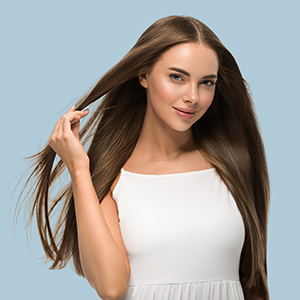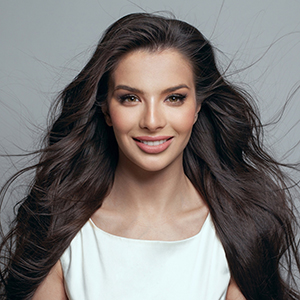Care tips for oily hair

Natural oils that balance hair moisture and protect your skin are produced by the sebaceous glands on your scalp. On the other hand, if these glands overproduce oil, the hair will appear greasy and unclean. These factors can frequently lead to oily hair:
Genetic Factors:
People who have family members with oily hair may be affected by genetic factors.
Hormonal Changes:
Changes in hormones brought on by menopause, puberty, and pregnancy can contribute to oily hair.
Inappropriate Hair Care:
Oiliness can be increased by bad hair care practices like over-or under-washing, using shampoo or conditioner that isn't meant for your hair type, and so on.
Overuse and Improper Application of Hairspray:
Hair oiliness can result from improper product selection and excessive use of hair sprays for styling.
Stress Factor:
Stress can lead to hormonal imbalances in the body, which in turn can increase the production of oil on the scalp.
Unbalanced Nutrition:
An unbalanced diet can impact the oil balance of the scalp because the health of your hair is connected to your general well-being.
Taking good care of the scalp and hair strands, which are subject to outside influences, is closely related to maintaining healthy hair. Even with regular washing, oily hair can easily return to its oily state, which can be detrimental to both the appearance of your hair and your mood. People with oily hair require a unique routine for hair care. Oily hair is a problem that can be managed with the right product selections and proper care routine.
These are some detailed hair care instructions for oily hair...
Selecting the Appropriate Shampoo for Oily Hair:
Use gentle shampoos that are silicone-free, oil-free, and appropriate for your hair type.
With Bio Protein in its formula, HAIR2000 Beauty Care Oily Hair Shampoo provides outstanding care for oily hair. Its non-silicone formula keeps your hair from becoming oily. By eliminating extra oil from your hair, Bio Protein technology helps you clean it. With each wash, it guarantees that your hair is lustrous, healthy, and incredibly soft. It facilitates the process of getting hair that appears fuller and more voluminous.
Use Care While Applying Conditioner:
Using conditioner helps ensure that your hair strands are properly nourished and moisturized, even if your scalp seems overly oily. It is imperative to ensure that the recommended conditioner formula is not dense, but rather light. We can properly take care of our hair and look healthy in this way. Remember this tip the next time you use conditioner:
Avoid contacting the scalp and only apply to the strands of the hair.
Regular Hair Wash:
Give your hair a regular wash. But refrain from over-washing your scalp every day as this can cause it to become parched and produce more oil.
Apply Warm Water:
The scalp may produce more oil when submerged in hot water. It will be helpful to wash your hair with warm water because of this.
Hair Masks:
Use clay masks or hair masks with natural oils to help balance the scalp. These masks remove excess oil from the scalp by absorbing it.
Balanced Nutrition:
Consuming a diet rich in vitamins and minerals will benefit both the condition of your hair and your body as a whole.
Avoid Stress:
Stress can make hair oilier. For relaxation, you can dedicate time to practices like yoga, meditation, or sports.
Taking proper care of your hair is a crucial first step in managing oily hair. By following these tips, you can get healthy, shiny hair and manage the issue of oily hair by preserving the scalp's natural balance. You can use HAIR2000 Beauty Care Oily Hair Shampoo, which does not contain silicone, as the first step in deep cleansing your hair.
Other articles





